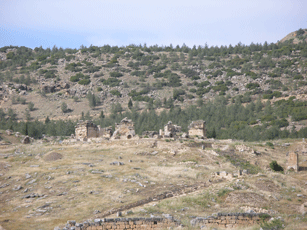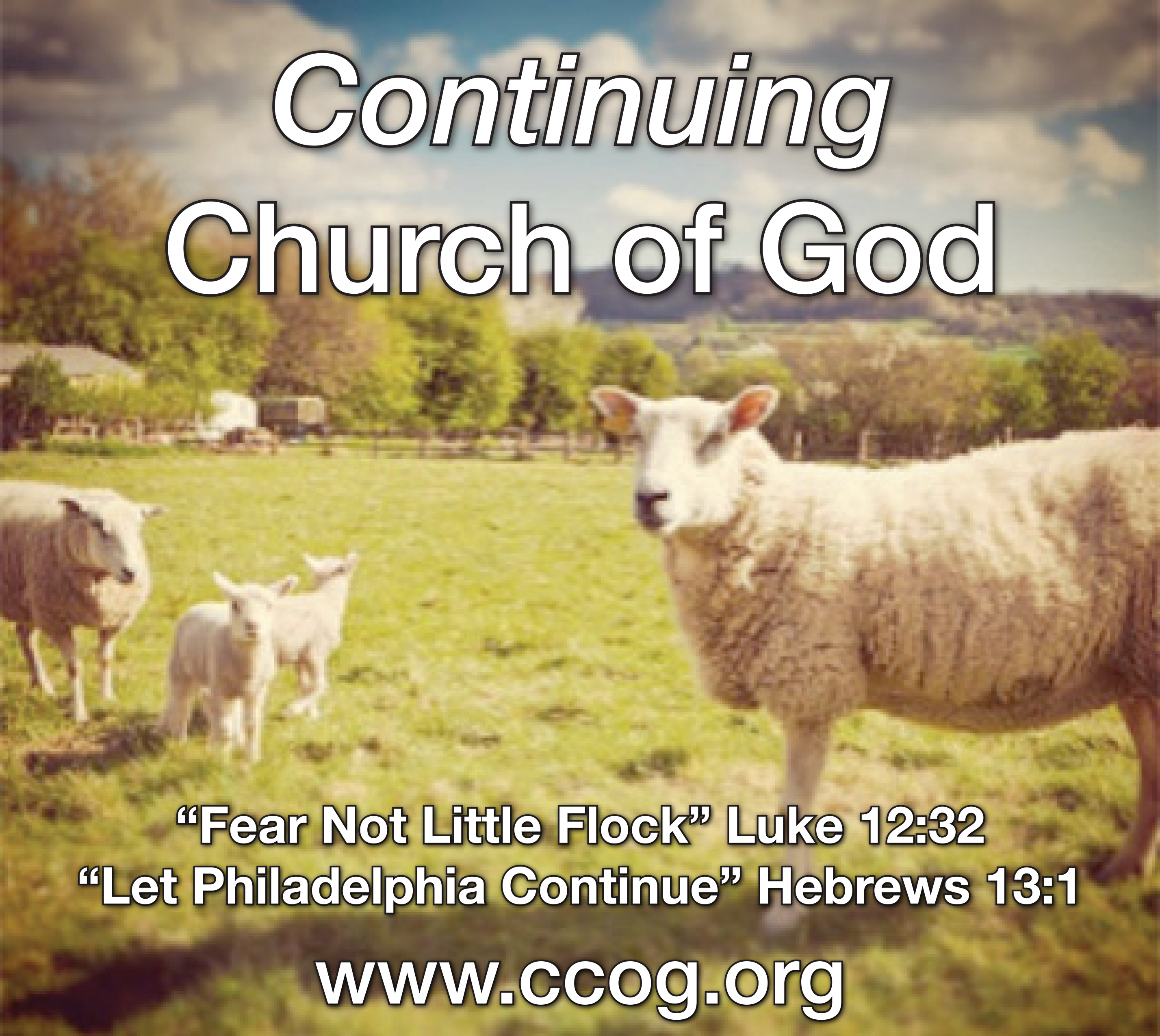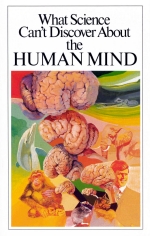Fox: More than 4,000 pastors protested against Canadian law that describes biblical morality as a ‘myth’
Monday, January 17th, 2022As of today, it’s official: Conversion therapy is banned in Canada. Our government’s legislation has come into force – which means it is now illegal to promote, advertise, benefit from, or subject someone to this hateful and harmful practice. LGBTQ2 rights are human rights.
— Justin Trudeau (@JustinTrudeau) January 7, 2022
In Canada, some leaders there point to biblical teachings on sexuality a “myth” according to the following from WND and Fox, whereas others disagree:
Thousands of pastors blast law that calls Bible a ‘myth’
New requirement part of ‘dark wave of hostility’ against Christians
January 17, 2022
Thousands of Christian pastors across North America on Sunday warned their congregations about a new movement that includes a law that blatantly describes biblical morality as a “myth.”
The fight is over Bill C-4, adopted by Canadian lawmakers with little discussion recently. It establishes a legal ban on “conversation therapy.” …
The fast-tracked Canadian law openly defies biblical history and teaching, denouncing those teachings as a “myth,” and imposing a potential five-year jail sentence for failing to align counseling events with the politically correct LGBT agenda. https://www.wnd.com/2022/01/thousands-pastors-blast-law-calling-bible-myth/
Thousands of churches raise alarm about scope of new Canadian ‘conversion therapy’ ban
More than 4,000 pastors protested against Canadian law that describes biblical morality as a ‘myth’
Thousands of clergy in North America devoted their sermons on Sunday to affirming biblical sexual morality in response to a new Canadian law some warn could effectively criminalize such teachings.
An initiative begun by Liberty Coalition Canada and promulgated in the United States by Pastor John MacArthur of Los Angeles secured the support of more than 4,000 Christian pastors who publicly expressed their willingness to protest from the pulpit regarding Bill C-4, Fox News Digital has confirmed.
The controversial legislation, which went into effect Jan. 8 after being fast-tracked through the Canadian Parliament in December without extensive debate, describes as a “myth” the belief that heterosexuality and cisgender identity are preferable. Counseling that does not align with such a worldview now carries a potential five-year jail sentence. 01/16/22 https://www.foxnews.com/world/thousands-churches-raise-alarm-scope-new-canadian-conversion-therapy-ban
As far as ‘myths’ go, the idea that humans are not binary in a sexual sense is a myth.
The following are all ‘binary’ scientific facts:
- Human males and human females have different genitalia.
- Even if the genitalia is surgically altered, all human female cells have XX chromosomes, whereas all human male cells have XY chromosomes. This does not change.
- It takes both a male and a female for human reproduction.
It is a myth to claim a human is not binary in the sexual and biological sense.
The State of California, along with Canada, and some other governments, has also banned aspects of ‘conversion therapy.’
It is a myth to claim that people cannot stop acting on homosexual impulses. It is wrong to tell counselors that they cannot help people who want to change that way.
As far as Canada goes, notice the following:
John MacArthur Calls On Pastors To Preach Biblical Sexuality In Defiance Of New Canadian Law That Would ‘Criminalize Evangelism’
December 30, 2021
Canadian pastors are warning that a new “conversion therapy” bill, just passed by parliament, will likely ban them from teaching that homosexuality and transgenderism are sins according to the Bible.
The bill in question, known as C-4, unanimously passed both the House of Commons and the Senate before receiving Royal Assent on December 8, meaning it will officially become Canadian law on Jan 8. On the surface, it’s meant to outlaw “conversion therapies”— that is, psychological treatments intended to re-train same-sex attracted people to prefer the opposite sex and individuals who believe they’re transgender to embrace their biological sex. When approached in a coercive or abusive manner, nearly all mainstream Christian denominations also condemn such therapy.
But critics say C-4’s language is so broad it also effectively bans preaching and teaching based on biblical sexual ethics. For instance, it could prevent counseling that references the many Old and New Testament passages that demonstrate God reserves sex for one man and one woman within the bond of marriage. It could also criminalize any instruction that confirms human beings are created as indelibly male or female from birth (the Bible also condemns men dressing like women and vice versa in verses like Deuteronomy 22:5).
Even further, the bill makes it a crime for parents to provide Christian therapy to their children suffering from gender dysphoria and prevents pastors and other religious leaders from offering biblical counseling or advice to same-sex attracted individuals who desire to obey God’s commands to repent from the sin of homosexual practices. Violations carry a penalty of up to five years in prison.
In response, John MacArthur, longtime senior pastor of Grace Community Church in Los Angeles, is asking for ministers across the U.S. to join him in preaching about God’s standard for sexuality on Jan 16. MacArthur’s statement, issued Dec. 28, calls for a show of solidarity that will “put the Canadian and the U.S. governments on notice that they have attacked the Word of God.” https://harbingersdaily.com/john-macarthur-calls-on-pastors-to-preach-biblical-sexuality-in-defiance-of-new-canadian-law-that-would-criminalize-evangelism/
For years, the LGBTQ crowd has tried to claim that they were ‘born that way’ and had no choice. Well, a recent study has concluded that no, human genetics does not make one homosexual. Harvard Magazine reported:
There is no one gene for being gay … That’s the conclusion of a paper by an international team of researchers, co-led by Benjamin Neale of the Broad Institute of Harvard and MIT, published today in the journal Science. The team combed the genomes of more than 470,000 people in the United States and the United Kingdom to see how genetic variants at millions of different places in the genome correlate with whether participants had ever had sex with someone of the same sex. The study, by far the largest such investigation of sexuality to date, was made possible by combining genetic and behavioral data from more than 400,000 people from the UK’s BioBank study, and from 70,000 customers of the genetic testing company 23andMe, who opted in to having their data used for research. … the team estimated that the genetic variants they studied could predict, at best, somewhere between 8 percent and 25 percent of the reported variation in the entire cohort’s sexual behavior. …
“It’s effectively impossible to predict an individual’s sexual behavior from their genome,” said Neale, the director of genetics in the Stanley Center for Psychiatric Research at the Broad and an associate professor in medicine at Harvard Medical School (HMS), during a Tuesday teleconference introducing the paper’s findings. …
In 1993, Michael Hamer, Ph.D. ’77, then a researcher at the National Institutes of Health, published results showing a correlation between male homosexual behavior and a cluster of genes, called Xq28, at the tip of the X chromosome. Exactly which gene in this cluster may be involved has proven elusive—the current study found no significant association between the X chromosome and same-sex sexual behavior—but the idea that a “gay gene” might lie somewhere in Xq28—or elsewhere—was captivating. Genetics was gaining increasing authority and public attention (the human genome project launched in 1990), Bronski points out, “So ‘I was born this way’ then became a genetic argument, that there is…something physical…that made you have these attractions.” 08/29/19 https://harvardmagazine.com/2019/08/there-s-still-no-gay-gene
Now, in my opinion, in order to be more ‘politically correct,’ the researchers indicated that there was some genetic influence, but it was not more than 8-25%–and that is an overstatement. There is no proof that genes make one LGBTQ.
Here is another report:
A genetic analysis of almost half a million people has concluded there is no single “gay gene”.
29 August 2019
Five specific genetic variants were found to be particularly associated with same-sex behaviour, including one linked to the biological pathway for smell, and others to those for sex hormones.
But together they only accounted for under 1% of same-sex behaviour. …
David Curtis, honorary professor at the UCL Genetics Institute, University College London, said: “This study clearly shows that there is no such thing as a ‘gay gene’.
“There is no genetic variant in the population which has any substantial effect on sexual orientation. https://www.bbc.com/news/health-49484490
Under 1 percent! And even then, that also is not proof, but conjecture.
This ‘born this way’ argument helped the LGBTQ crowd get sympathy and win over various courts, academics, and government officials.
Related to that, the Continuing Church of God (CCOG) put out the following video on our Bible News Prophecy YouTube channel:
A study came out in August of 2019 showing that so many Americans are so fearful from news reports that more have become doomsday preppers. Meaning that they are storing up food, weapons, and other supplies for an apocalyptic type event to hit the USA. Jesus said sorrows and troubles would come, then a tribulation so bad that unless God intervened, no flesh would be saved alive. Is physical preparation the answer? Should Christians do any type of disaster preparations? Does God have a plan to protect some or all Christians from the coming “hour of trial” that Jesus spoke of? Who is promised protection and who is not? Is keeping the commandments enough? What has Jesus said His people should do? Are you supporting the work that needs to be completed before the end comes? Dr. Thiel addresses these issues and more.
Here is a link to the sermonette: Gay Gene? Born That Way?
The Bible, itself, says to:
1 Cry aloud, spare not;
Lift up your voice like a trumpet;
Tell My people their transgression,
And the house of Jacob their sins. (Isaiah 58:1, NKJV throughout, unless otherwise noted)
That is partially why within a few days of the US Supreme Court ruling in favor of homosexual ‘marriage,’ we put out the following video back in 2015:
What does the Bible really teach about homosexuality and various parts of the LGBTIQ agenda? Are Protestant theologians like the Episcopal Priest Susan Russell or Anglican Archbishop Desmond Tutu correct about their views on Christianity and the homosexual agenda? Dr. Thiel answers ten FAQs that one of them wrote, plus addresses other statements that some who claim to be Christian leaders have advocated about homosexuality. He deals with what the Bible really teaches about homosexuality and whether the Bible teaches any risks associated with the homosexual agenda. Dr. Thiel also mentions certain health/disease issues that homosexuals/bisexuals are more susceptible for. Christians need to realize that the Bible, not compromised theologians, teach about aspects of the LGBTIQ agenda.
Here is a link to the this video sermon: What Does the Bible Really Teach about Homosexuality?
As far as Canada goes, C-4 is not the first time Canadian laws have gone against biblical morality.
Certain Canadian government officials have prohibited quoting scriptures that condemn various sexual sins. Related to that we put out the following video on our Bible News Prophecy YouTube channel:
In 2017, Lauri Skori of the Battle River School board told a religious school in Alberta, Canada that it could not teach/read certain portions of the Bible. In 2002, a court in Canada ruled against one who referred to certain scriptures that some homosexuals objected to. In 2017, there was “An Act to Amend the Canadian Human Rights Act and Criminal Code” related to those who wish to be considered transgendered. Government officials in Canada and elsewhere have been ruling against the Bible. Is any of this prophesied? Will this get worse? What was the prophet Amos inspired to write?
Here is a link to our video: Canadian censoring of the Bible.
The Bible warns against not only engaging in sexual immorality, but also approving it:
20 For since the creation of the world His invisible attributes are clearly seen, being understood by the things that are made, even His eternal power and Godhead, so that they are without excuse, 21 because, although they knew God, they did not glorify Him as God, nor were thankful, but became futile in their thoughts, and their foolish hearts were darkened. 22 Professing to be wise, they became fools, 23 and changed the glory of the incorruptible God into an image made like corruptible man — and birds and four-footed animals and creeping things.
24 Therefore God also gave them up to uncleanness, in the lusts of their hearts, to dishonor their bodies among themselves, 25 who exchanged the truth of God for the lie, and worshiped and served the creature rather than the Creator, who is blessed forever. Amen.
26 For this reason God gave them up to vile passions. For even their women exchanged the natural use for what is against nature. 27 Likewise also the men, leaving the natural use of the woman, burned in their lust for one another, men with men committing what is shameful, and receiving in themselves the penalty of their error which was due.
28 And even as they did not like to retain God in their knowledge, God gave them over to a debased mind, to do those things which are not fitting; 29 being filled with all unrighteousness, sexual immorality, wickedness, covetousness, maliciousness; full of envy, murder, strife, deceit, evil-mindedness; they are whisperers, 30 backbiters, haters of God, violent, proud, boasters, inventors of evil things, disobedient to parents, 31 undiscerning, untrustworthy, unloving, unforgiving, unmerciful; 32 who, knowing the righteous judgment of God, that those who practice such things are deserving of death, not only do the same but also approve of those who practice them. (Romans 1:20-32)
The world is not benefiting from homosexuality or the transgender agenda.
The Bible says that true Christians can overcome practicing homosexuality and other forms of sexual immorality:
13 I can do all things through Christ who strengthens me. (Philippians 4:13)
13 No temptation has overtaken you except such as is common to man; but God is faithful, who will not allow you to be tempted beyond what you are able, but with the temptation will also make the way of escape, that you may be able to bear it. (1 Corinthians 10:13)
18 Flee sexual immorality. Every sin that a man does is outside the body, but he who commits sexual immorality sins against his own body. 19 Or do you not know that your body is the temple of the Holy Spirit who is in you, whom you have from God, and you are not your own? 20 For you were bought at a price; therefore glorify God in your body and in your spirit, which are God’s. (1 Corinthians 6:18-20)
9 Do you not know that the unrighteous will not inherit the kingdom of God? Do not be deceived. Neither fornicators, nor idolaters, nor adulterers, nor homosexuals, nor sodomites, 10 nor thieves, nor covetous, nor drunkards, nor revilers, nor extortioners will inherit the kingdom of God. 11 And such were some of you. But you were washed, but you were sanctified, but you were justified in the name of the Lord Jesus and by the Spirit of our God. (1 Corinthians 6:9-11)
5 Put to death, therefore, whatever belongs to your earthly nature: sexual immorality, impurity, lust, evil desires and greed, which is idolatry. 6 Because of these, the wrath of God is coming. 7 You used to walk in these ways, in the life you once lived. 8 But now you must also rid yourselves of all such things as these: anger, rage, malice, slander, and filthy language from your lips. 9 Do not lie to each other, since you have taken off your old self with its practices 10 and have put on the new self, which is being renewed in knowledge in the image of its Creator. (Colossians 3:5-10, NIV)
But in this age, many governmental officials and others do not believe that.
A few years ago, something was proposed in California that looked to try to do stop people from disagreeing with aspects of the LGBTQ+ agenda.
Related to that, we put out the following video on our Bible News Prophecy YouTube channel:
Could we see a ban of the Holy Bible in North America? Have there been partial bans proposed and enforced by government officials in Canada? Do any USA politicians consider any biblical teachings as fraudulent and hence banning them is NOT a violation of the 1st amendment to the Constitution of the USA? Are there risks associated with AB 2943? Have politicians like Hillary Clinton and California Assemblyman Al Muratsuchi called for long-held religious beliefs to change and “evolve with the times”? What about Jude 1:3 and 2 Timothy 3:14? Are there biblical prophecies about not being able to hear the word of God? Might we see more restrictions on explaining teachings of the Bible on the Internet and other forms of media? What are some of the verses that various government people do not want made public? Dr. Thiel provides facts on these issues and more.
Here is a link: Banning the Bible?
Many various government officials and those in Big Tech hate aspects of biblical morality and want to stop it.
Years ago, I warned that more censorship was coming.
Why?
Well, the New Testament records that Jesus said:
4 … the night is coming when no one can work. (John 9:4, NKJV)
4… the night cometh, when no man can work (John 9:4 KJV)
In an October 23, 1980 co-worker letter, the late WCG Pastor General Herbert Armstrong wrote about that:
The Bible warns us the time is just ahead when NO MAN CAN WORK—in the Lord’s Work.
In a November 22, 1982 co-worker letter, Herbert Armstrong further wrote:
… brethren and co-workers, the prophesied Great Tribulation (nuclear World War III) will start soon after the European unification. That means OUR WORK OF SPREADING THE GOSPEL OF THE KINGDOM OF GOD WILL BE FINISHED! We have not now much more time. Soon shall come a FAMINE of hearing the Word of the Lord (Amos 8:11). God says, work while it is day, for the night is coming when no man can work – in the Work of God! Nothing else is important in our lives, now, but this all-important Work of God. (http://cog-ff.com/html/pcomments_07_04_08.html, viewed 10/03/13)
Yes, the Bible tells of a time that will come when the word of God will not be found. And that would seem to be because it will be taken off the internet. In the 21st century, the internet is accessed by people in every country, and thus some type of internet restriction/suspension/site removal is coming. Some has already occurred.
More stifling of religious speech will happen.
The prophet Amos was inspired to record the following:
11 “Behold, the days are coming,” says the Lord God,
“That I will send a famine on the land,
Not a famine of bread,
Nor a thirst for water,
But of hearing the words of the Lord.
12 They shall wander from sea to sea,
And from north to east;
They shall run to and fro, seeking the word of the Lord,
But shall not find it. (Amos 8:11-12)
But, despite the coming famine of the word of God, please understand that according to Jesus, Matthew 24:14 will be fulfilled BEFORE the full ‘famine of the word’ happens:
14 And this gospel of the kingdom will be preached in all the world as a witness to all the nations, and then the end will come. (Matthew 24:14)
After the Gospel of the Kingdom of God has sufficiently reached the world the end comes and the Beast will rise up (Matthew 24:14-22, Revelation 13) and more totalitarian controls will be put in place.
Censorship and surveillance are increasing.
More speech restrictions, censorship. and persecutions are coming (cf. Revelation 13; Amos 8:11-12).
Have you taken the proper spiritual steps?
If so, have you responded as a Philadelphian Christian should?
Some items of possibly related interest may include:
The Bible Condemns Homosexuality “Same-sex marriage” for “gays” and lesbians is becoming more acceptable to many. What does the Bible teach about homosexuality and the LGBTQ agenda? Can homosexuals change? A related video sermon is titled: What Does the Bible Really Teach about Homosexuality? A short video is available titled: Gay Gene? Born That Way?
Should the Church Still Try to Place its Top Priority on Proclaiming the Gospel or Did Herbert W. Armstrong Change that Priority for the Work? Some say the Church should mainly feed the flock now as that is what Herbert W. Armstrong reportedly said. Is that what he said? Is that what the Bible says? What did Paul and Herbert W. Armstrong expect from lower level leaders? Two related sermons are available The Work per HWA and the Bible and Priority of the Philadelphia Work.
Preparing for the ‘Short Work’ and The Famine of the Word What is the ‘short work’ of Romans 9:28? Who is preparing for it? Will Philadelphian Christians instruct many in the end times? Here is a link to a related video sermon titled: The Short Work. Here is a link to another: Preparing to Instruct Many.
Physical Preparation Scriptures for Christians. We all know the Bible prophecies famines. Should we do something? Here is a version in the Spanish language Escrituras sobre Preparación física para los Cristianos. Here is a link to a related sermon: Physical preparedness for Christians.
22 items to prophetically watch in 2022 Much is happening. Dr. Thiel points to 22 items to watch (cf. Mark 13:37) in this article. Here is a link a related video: 22 items to watch in 2022.
Internet Censorship and Prophecy Are concerns about internet censorship limited to nations such as Russia, China, Iran, and North Korea. But what about the USA, Canada, and Germany? What about the European Union? What about internet media companies such as Facebook, Google, YouTube, or email services like MailChimp? Has the attempt to control information been made by various ones over the centuries? Was the New Testament affected by it? What about the church throughout the centuries? Has the Bible already been partially censored? Which Bible prophecies point to coming Internet censorship? What about the Book of Amos? What about the coming 666 Beast and final Antichrist? Is there anything that can be done about this? Should Philadelphian Christians be working on anything now? Will preaching the Gospel of the Kingdom of God vs. a highly media-supported alternative lead to a ‘famine of the word’? More internet censorship is coming as various statements in the Bible support.
The Spanish Inquisition and Early Protestant Persecutions Was the Church of Rome really responsible for this? What happened? Here is a link to a related video sermon: The Past and Future Inquisition.
Persecutions by Church and State This article documents some that have occurred against those associated with the COGs and some prophesied to occur. Will those with the cross be the persecutors or the persecuted–this article has the shocking answer. There is also a YouTube video sermon you can watch: The Coming Persecution of the Church. Here is information in the Spanish language: Persecuciones de la Iglesia y el Estado.
Orwell’s 1984 by 2024? In 1949, the late George Orwell wrote a disturbing book about a totalitarian government called “nineteen-eighty four.” Despite laws that are supposed to protect freedom of speech and religion, we are seeing governments taking steps consistent with those that George Orwell warned against. We are also seeing this in the media, academia, and in private companies like Google, Facebook, and Twitter. With the advent of technology, totalitarianism beyond what Orwell wrote is possible. Does the Bible teach the coming a totalitarian state similar to George Orwell’s? What about the Antichrist and 666? Will things get worse? What is the solution? Dr. Thiel answers these questions and more in this video.
Christians: Ambassadors for the Kingdom of God, Biblical instructions on living as a Christian This is a scripture-filled booklet for those wishing to live as a real Christian. A related sermon is also available: Christians are Ambassadors for the Kingdom of God.
The Gospel of the Kingdom of God This free online pdf booklet has answers many questions people have about the Gospel of the Kingdom of God and explains why it is the solution to the issues the world is facing. Here are links to four related sermons: The Fantastic Gospel of the Kingdom of God!, The World’s False Gospel, The Gospel of the Kingdom: From the New and Old Testaments, and The Kingdom of God is the Solution.
When Will the Great Tribulation Begin? 2022, 2023, or 2024? Can the Great Tribulation begin today? What happens before the Great Tribulation in the “beginning of sorrows”? What happens in the Great Tribulation and the Day of the Lord? Is this the time of the Gentiles? When is the earliest that the Great Tribulation can begin? What is the Day of the Lord? Who are the 144,000? Here is a version of the article in the Spanish language: ¿Puede la Gran Tribulación comenzar en el 2020 o 2021? ¿Es el Tiempo de los Gentiles? A related video is: Great Tribulation: 2026 or 2027? A shorter video is: Can the Great Tribulation start in 2022 or 2023? Here is a video in the Spanish language: Es El 2021 el año de La Gran Tribulación o el Grande Reseteo Financiero.
Is God Calling You? This booklet discusses topics including calling, election, and selection. If God is calling you, how will you respond? Here is are links to related sermons: Christian Election: Is God Calling YOU? and Predestination and Your Selection. A short animation is also available: Is God Calling You?
Christian Repentance Do you know what repentance is? Is it really necessary for salvation? Two related sermons about this are also available: Real Repentance and Real Christian Repentance.
Just What Do You Mean — Repentance? Do you know what repentance is? Have you truly repented? Repented of what? Herbert W. Armstrong wrote this as a booklet
The Philadelphia Church Era was predominant circa 1933 A.D. to 1986 A.D. The old Radio Church of God and old Worldwide Church of God, now essentially the most faithful in the Church of God, which is best represented by the Continuing Church of God.

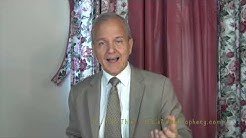



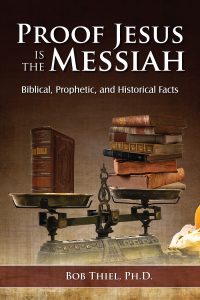

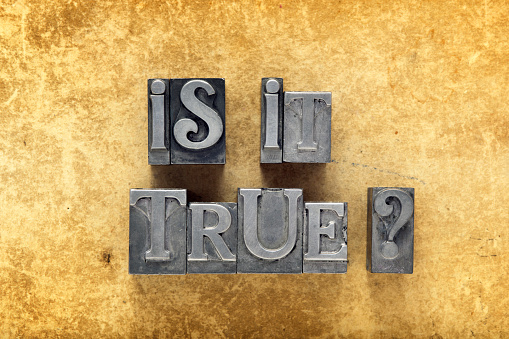

 1:16:37
1:16:37 

